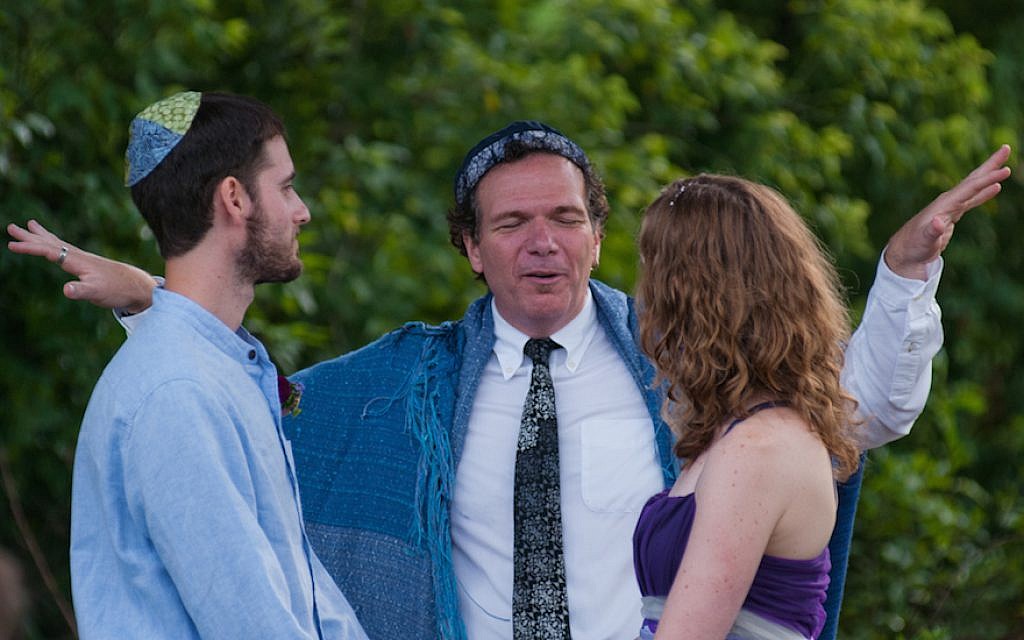About four-in-ten married Jews have a non-Jewish spouse, according to the Pew Research Center’s report, Jewish Americans in 2020. Some Jewish communal leaders are concerned. Is intermarriage such a bad thing?
ANDREA HIRSCHFELD
Former President, Congregation B’nai Israel, Millburn, NJ
Growing up in post-war Skokie, IL, it was common to hear parents, even unaffiliated, exclaim: “If you marry a non-Jew, I will sit shiva for you.” I am seeing something very different now and am comfortable with the shift. I don’t believe we are diluting Judaism.
My daughter has married out of the faith. She raises her boys as Jews with exceptional partnering and earnest support from her husband. The children attend a Schechter school and Shabbat is observed. They are members of a synagogue where her husband is fully accepted and both have considered Board membership.
The most influential factor in whether children of interfaith homes identify as Jewish is the Bubbe. I’d like to believe that my involvement in the lives of my children, no matter how they choose to practice, has made a big impact on how the next generation will identify.
As a case in point, personally, as someone who grew up unaffiliated in Skokie, in a non-kosher home, and not a Shabbat observer … engagement and acceptance is key for creating continuity. We were not far from being “non-Jewish” except for the company we kept and the grandmother who made holidays for us. One of the most important opportunities we have for future engagement is making sure interfaith families have access and company to keep.
RABBI STEVEN BAYAR
JSurge.org Executive Director
Have we ever looked beyond the statistics of intermarriage? If we did, would we find a somewhat different picture than the one presented?
The studies show that the children of intermarriage overwhelmingly do not identify as Jews. But is that the real picture presented or just a projection of what we want to be true?
Rabbi Alan Silverstein, in a recent Times of Israel blog, suggests that we divide the Jewish community into “affiliated Jews” and “non-affiliated” Jews. In other words: we need to look at members of the Jewish community, what they do, and how active they are, before we make generalizations about Jewish demographics.
I would add that we should also separate the intermarried demographic in like manner.
Perhaps we should separate our already divided community into those most likely to retain Jewish identity with those who seek to lose it.
Ms. Hirschfeld shows us her family – where intermarriage with a supportive extended family and committed Jewish spouse has created a Jewish family unit. In my own experience, my brother married Jewish but neither he nor his wife readily identified as Jews – and he has no children who actively or passively identify as Jews.
Granted, it is anecdotal – but I suspect that there is more than a bit of truth that an identified Jew who marries a non-Jew does not deserve to be treated as intermarriage in the traditional sense of the word. Ms. Hirschfield reminds us that perhaps we should be more concerned about creating committed Jews than whom they will marry.

